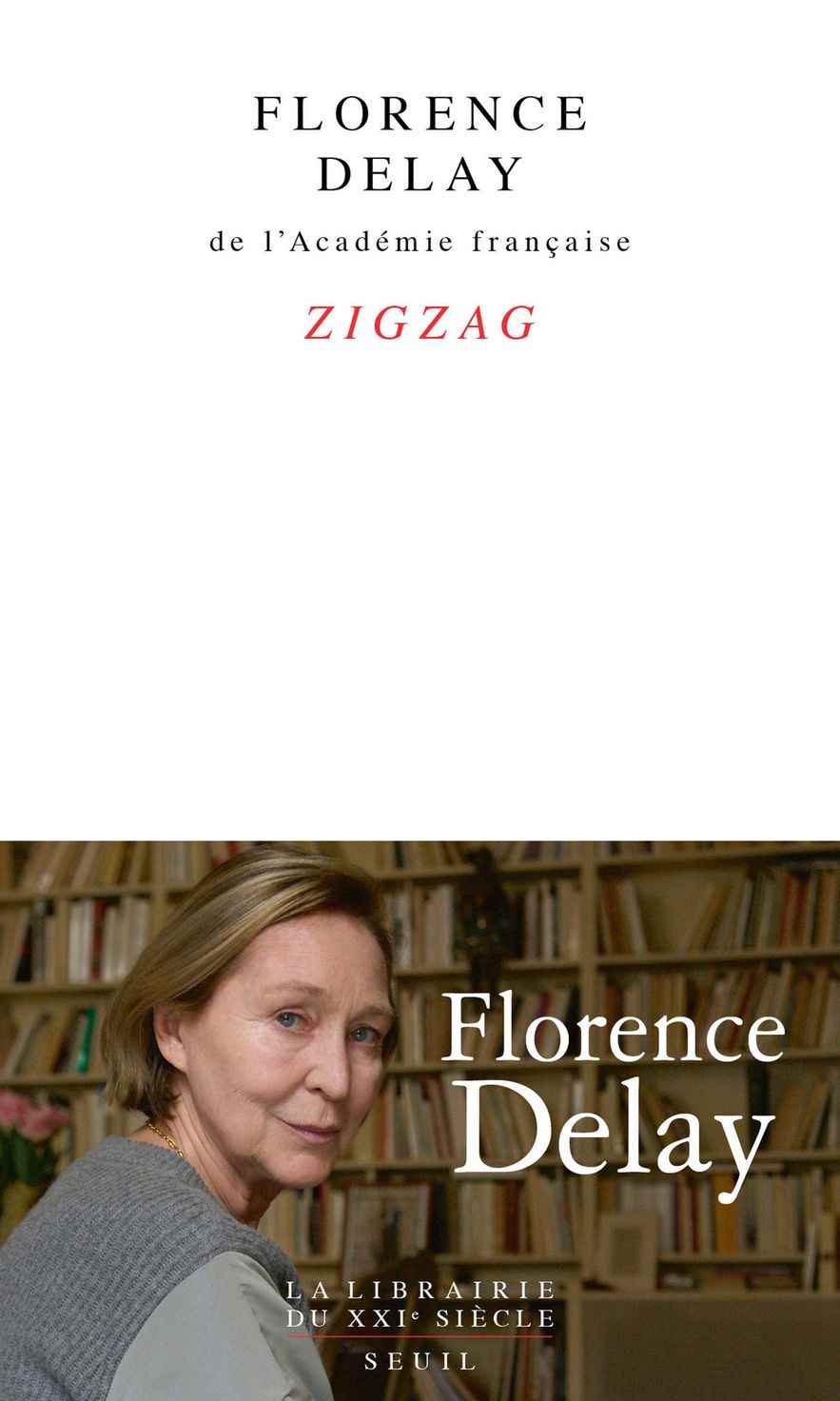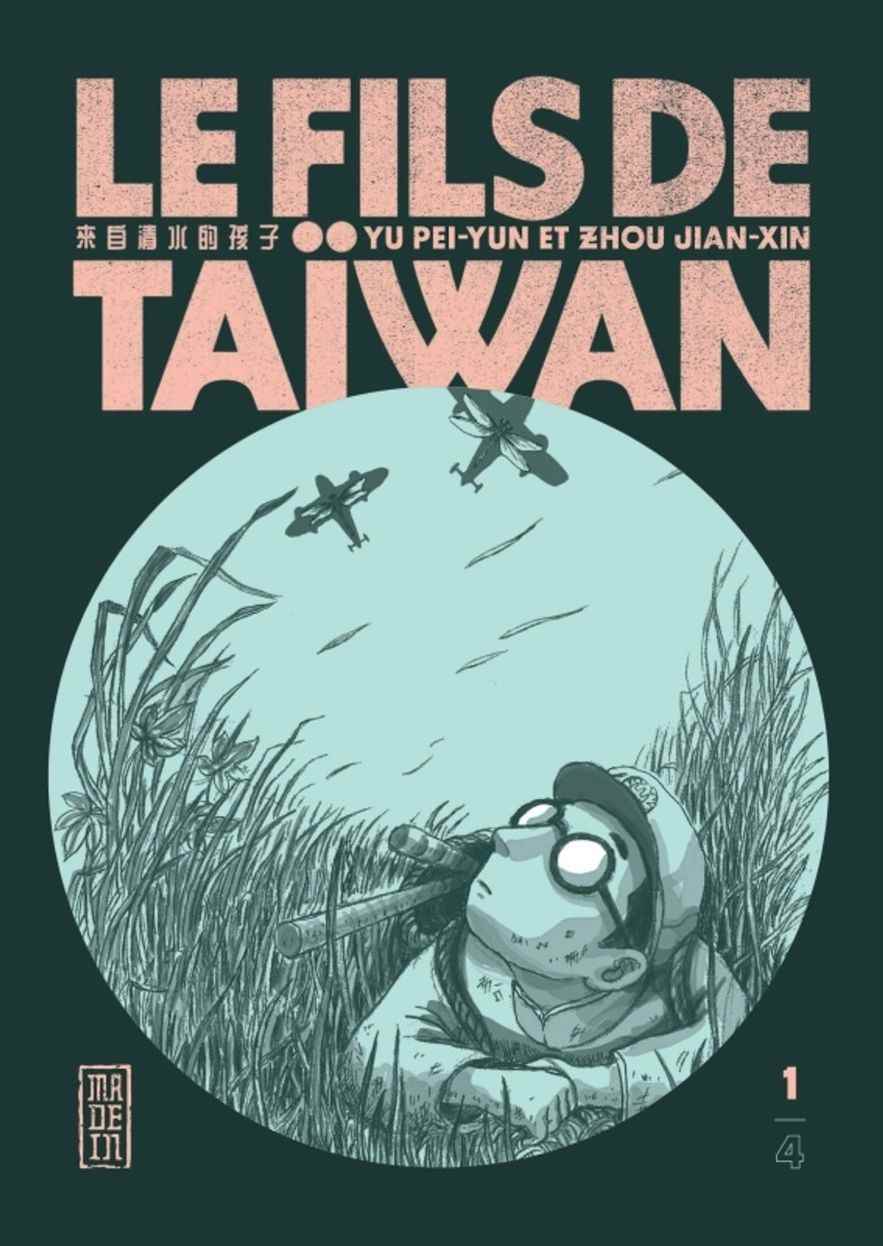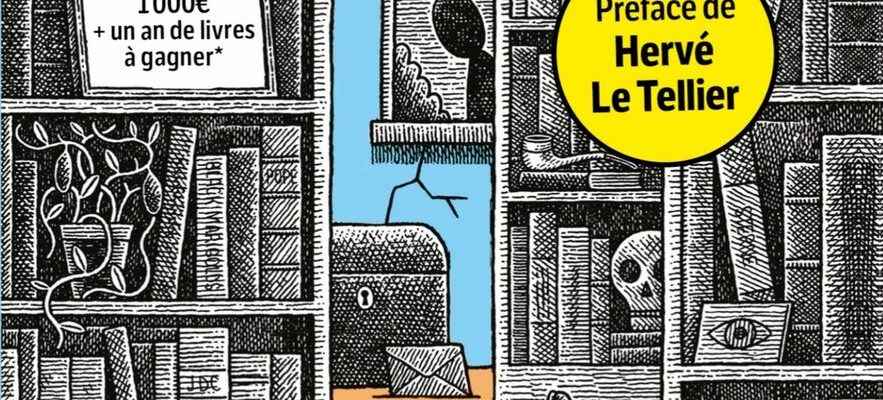Cain’s Jaw
By Torquemada, trans. from English by Claire Watson.
The pocket book, 100 p., €14.90.
The rating of L’Express: 4/5
CAIN’S JAW By TORQUEMADA
© / THE POCKET BOOK
You can be mischievous when you’re 70. To celebrate the seven decades of its small format launched by Henri Filipacchi in February 1953, Le Livre de Poche publishes “the most diabolical enigma in the world”. Written in 1934 by the English poet and cruciverbist in The Observer Edward Powys Mathers, aka Torquemada, Cain’s Jaw unfolds six murders in some one hundred (detachable) pages placed in random order. The challenge ? Rearrange the pages to give a cohesive detective story and provide the names of the six victims and their killers. There are millions of possible combinations, but only one correct sequence of pages. Only three people have so far succeeded in solving the enigma – Le Livre de Poche, the first French publisher of the UFO, bought from the Laurence Sterne Trust, owner of the book, the resolution of this “literary child of Agatha Christie and James Joyce, even TS Eliot”, as the Oulipian Hervé Le Tellier writes in the preface.
The author of The Anomaly recalls that the first two discoverers (in the 1930s) received a reward of 15 pounds and that the third, the actor and screenwriter John Finnemore (in November 2020), received 1,000 dollars – The Pocket Book, for its part, will pay the first winner 1,000 euros and 100 pounds. Le Tellier also recalls how complex the translation was. Word games, language levels, transpositions, cultural and historical references, clutter and clues to respect, neutrals to introduce… A story of crazy kids, we tell you. PM
Zigzag
By Florence Delay.
Threshold, 165 p., €18.
The rating of L’Express: 3/5

ZIGZAG By FLORENCE DELAY
© / THRESHOLD
Why inflict cobblestones on yourself, both as an author and as a reader? With all due respect to the talkers, conciseness is a cardinal virtue. Without going back to Saint Benedict, who advocated absolute silence for his brother monks, Florence Delay quotes this saying of Saint Francis of Assisi: “Christ has shortened human speech.” Asceticism is good, in times of Lent as in the literary field.
In Zigzag (revised edition of Small forms in prose after Edison, published in 1987), Florence Delay does not appeal only to saints. She also quotes Mohamed Ali putting K.-O. an opponent in less than a minute of combat: “A lightning-fast blow, relentless, like a thunderclap.” Behind a blank page like in a boxing ring, inspiration and speed are required to achieve “maximum meaning in a minimum of words.” In this essay composed of short paragraphs, the academician praises (from which the lightning strikes) writers who have distinguished themselves in the art of maxims and aphorisms, haiku and witticisms. If she gladly laughs at good words from Alphonse Allais and Marcel Duchamp, Florence Delay shares with Jules Renard “this poignant feeling which makes you touch a sentence like a firearm”. It is no coincidence that she cites Jacques Rigaut and Chamfort: the former committed suicide by shooting himself in the heart with a revolver bullet, the latter by slitting his veins with a letter opener. These two authors would have deemed it unworthy to dwell on this little article, which was already much too long. Louis-Henri de La Rochefoucauld
The Son of Taiwan, volume 1
By Yu Pei-Yun and Zhou Jian-Xin, trans. Mandarin by An Ning.
Kana Editions, 176 pages, €18.50.
The rating of L’Express: 4/5

THE SON OF TAIWAN, TOME 1 By YU PEI-YUN AND ZHOU JLAN-XIN, TraD. FROM MANDARIN By ANNING.
© / KANA EDITIONS
At the heart of tensions between China and the United States, Taiwan is regularly in the international news. Chinese military intimidation against the island of 23 million inhabitants, which Beijing considers to be one of its provinces, raises fears of an attack by the autocratic regime against this democracy, which could drag the world into war. A major geopolitical issue, the history of the former Formosa deserves to be explored. The Son of Taiwan, a graphic account in four volumes, chronicles the life – real and eventful – of Kunlin Tsai, a former publisher now aged 92, who grew up in the south of the island in the 1930s, under the occupation Japanese. The young boy speaks the local dialect at home and Japanese at school. A good student, he was enlisted alongside Japan as a student-soldier in 1944, during the Second World War, which saw Taipei bombarded by the Americans.
Japan’s surrender will not bring relief. The Chinese nationalist leader Chiang Kai-shek, who withdrew to the island in 1949 after his defeat against the communist troops of Mao Zedong, established a dictatorial power. The “white terror” falls in particular on anyone suspected of communist sympathy. The hero, Kunlin, will be a victim of this repression. “We wanted to make Taiwanese youth better aware of the history of their island, including its darkest periods, which are sometimes still a little taboo,” explains Zhou Jian-Xin, who illustrated the script by Yu Pei-Yun, professor in children’s literature. Sensitive and very well documented, this testimony in a sober and poetic style is also precious for a Western audience. Cyrille Pluyette
